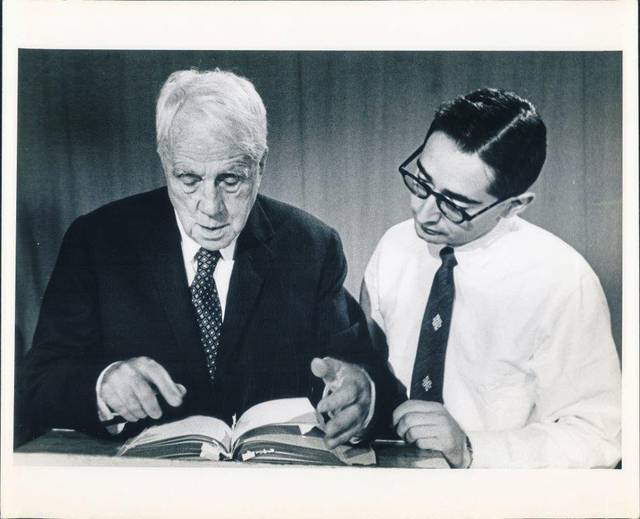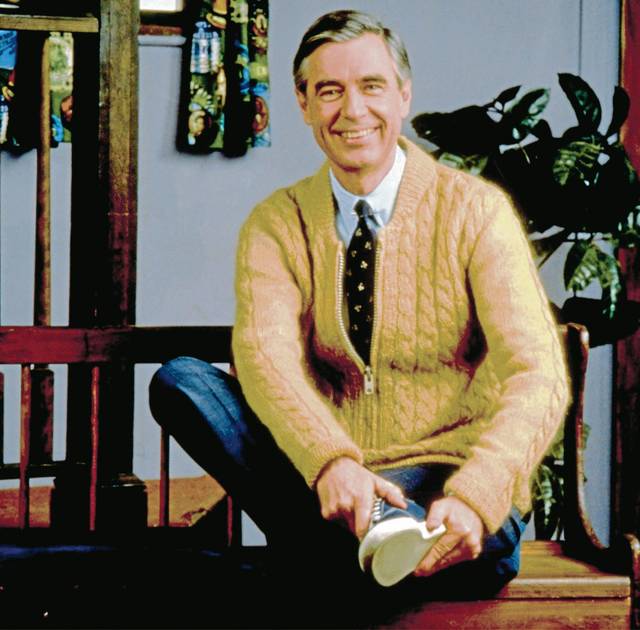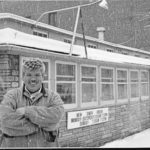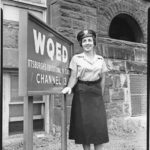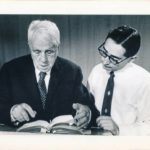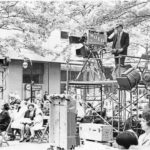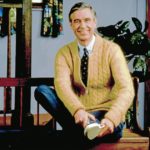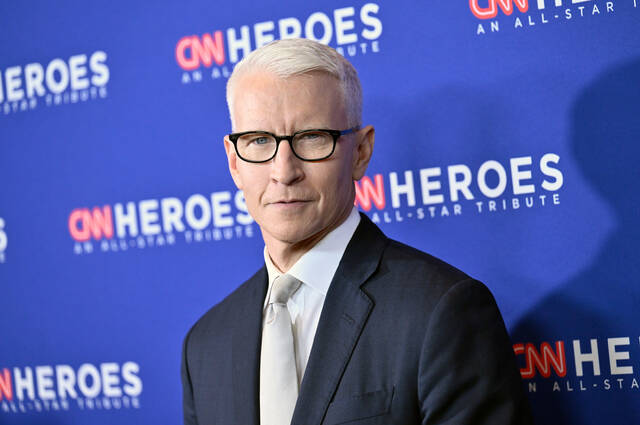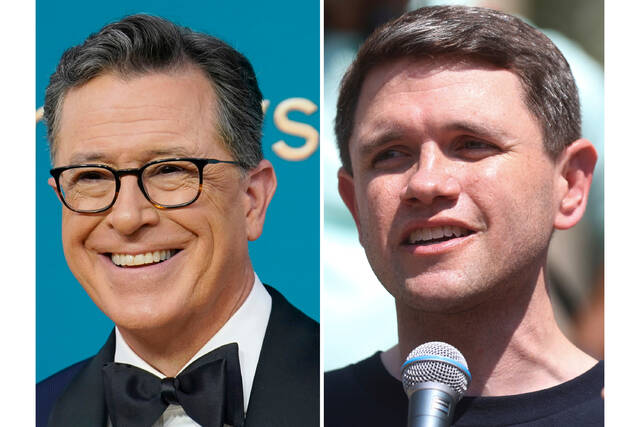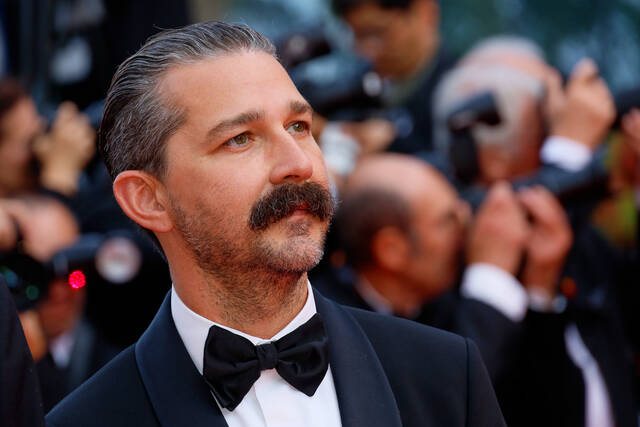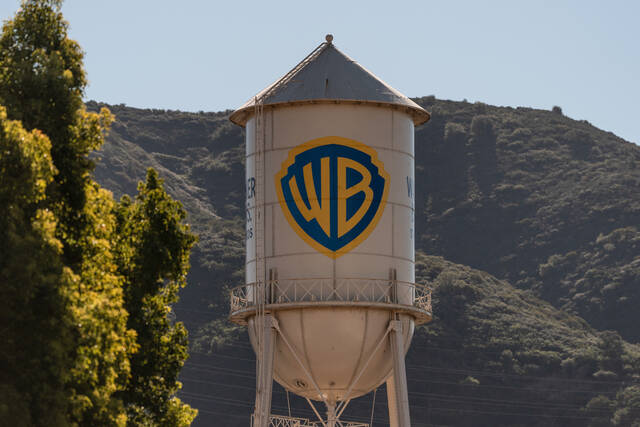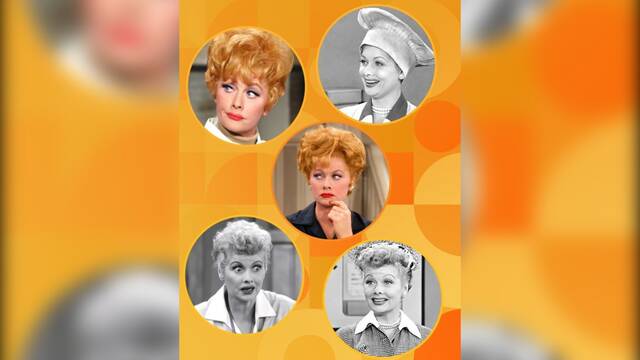WQED’s history is a storied one.
Its expansion to radio, digital and community programming has always held education as its foundation.
An early holder of an educational broadcast license, WQED began with a flicker of life on VHF Channel 13 at 8 p.m. on April 1, 1954, in Pittsburgh. It was was the launch of the nation’s first community-supported educational television station.
Its original support included family donations of $2 from 200,000 households, foundation and corporate support, and a building and transmitter donation from local corporations.
Today, it beams children’s programs, concerts, news and entertainment documentaries around the world.
And preparations are under way for a year-long celebration of 65 years of broadcasting.
“WQED’s modest introduction to the people of Pittsburgh that evening was a new idea — an experimental station free from commercial influence,” says Deborah L. Acklin, president and CEO.
Public television, she says, is the third leg of a stool that already was balancing Pittsburgh’s “terrific” public education system and the library system established by Andrew Carnegie.
Generations of families have watched as programming expanded, introducing children to Fred Rogers, who taught them how to be good citizens and neighbors.
Is that all there is?
Acklin shares a story Rogers told her of how he came to WQED.
While working for NBC in New York one day, he saw on a television monitor a man get hit in the face with a pie.
“He thought, ‘Is that all the medium is going to do?’” she says.
“Hearing that his hometown of Pittsburgh/Latrobe was getting an education station, he asked (original station manager) Dorothy Daniel for a job. He was our first program director,” Acklin says.
“This was a woman who really changed things,” she says of Daniel.
She also inadvertently helped create a much-loved children’s character.
During a party the night before WQED went on the air, Daniel gifted Rogers with a hand puppet of a tiger.
“He named it Daniel Striped Tiger in her honor,” Acklin says.
Bouncing back, reaching out
Several years ago, in the midst of WQED’s financial problems and strategic planning, a historical marker lauding its efforts caught Acklin’s eye. It notes the station’s history and its telecast of classes to elementary school children.
“I thought, ‘Wow, this place was always about innovation,’” Acklin recalls.
Technology beyond the classroom and television set came into play. With numerous partnerships, she says, content began delivery both over airwaves and in person.
“The best example I can think of is a program we created with community libraries in Western Pennsylvania and West Virginia — ‘Inquire Within’ ” Acklin says.
“We bring WQED and PBS material for family engagement events,” she says.
“People think of WQED as broadcast and radio. And it is, but that’s not the whole story,” Acklin says.
Celebrities of its own
WQED regularly produces documentaries addressing issues such as the region’s workforce , its “nebby” reputation via Rick Sebak, the great outdoors, music and entertainment, and the contributions of volunteers, including Greensburg’s late, longtime fire chief, Ed Hutchinson.
“Anything Rick Sebak does really draws in viewers. His work is truly beloved,” Acklin says.
A small production team and a community advocacy volunteer group brainstorm content ideas. “We really do try to be about Pittsburgh,” Acklin says.
Important national topics, such as the opioid crisis and mental health issues, also receive coverage.
An online piece on the Big Savage Tunnel several years ago was one of WQED’s most successful.
“It got clicks from all over the country and the world,” Acklin says. That response led to interest in producing the recent documentary “The Great Ride.”
Celebrating kindness
As part of its anniversary celebration plans, WQED is launching the WQED + Kindness initiative.
“If there were an inspirational figure at the center of it, it would be Fred Rogers,” Acklin says.
Many people quote Rogers’ advice to children who are scared: “Look for the helpers.”
“My favorite is, ‘There are three ways to ultimate success in life. The first way is to be kind. The second way is to be kind. The third way is to be kind.’ He never wavered from that,” Acklin says.
Following the Tree of Life shootings in October, WQED opened its Fred Rogers Studio for a community event, showing PBS children’s programs.
Children were invited to write on a Kindness Tree.
Instead of a gala, WQED will “turn the spotlight outward,” Acklin says.
Initiative activities, including invitations to share stories and pop-up events, and a community celebration on Oct. 2, will be posted at wqed.org/kind on April 1.
Moving forward
What does WQED’s future hold? “I don’t know, but I’m excited to find out,” Acklin says. She hopes that technology’s ability to expand programming and audience reach will allow people immediate access and resources without regard to “clocks or geography.”
“We want to extend our reach without changing our mission,” Acklin says.
WQED HISTORY TIMELINE
1954
WQED became the nation’s first community-supported television station with its first broadcast on April 1.
“The Children’s Corner” with host Josie Carey and producer, puppeteer and composer Fred Rogers was one of the first regularly scheduled shows on WQED.
1955
WQED broadcast the first televised school lessons ever to 13 Allegheny County elementary schools.
1959
WQED became the first educational station to operate a secondary channel, WQEX, which was focused on televised classroom instruction.
1965
The first color broadcast on WQED.
1967
The original “Forsyte Saga” aired over 26 weeks.
1968
“Mister Rogers’ Neighborhood” was filmed at WQED and broadcast nationally on PBS.
First broadcast of “Black Horizons,” which was America’s longest running minority affairs series.
1970
WQED moved to current location in Oakland.
Pittsburgh Magazine was established.
1972
The Great TV Auction was hosted on WQED.
1973
Classical WQED-FM 89.3 went on the air.
1975
WQED brought National Geographic Society specials to PBS.
1980
“Death of a Princess” became the most watched PBS program in history.
1986
With programs like “Planet Earth, National Geographic Specials” and “WonderWorks,” WQED became one of PBS’s four top producing stations.
1989
Rick Sebak’s “Kennywood Memories” aired, sparking the Pittsburgh History Series.
1993
WQED’s first cooking marathon, “Zucchini Cheesecake,” was broadcast.
1994
WQED-FM started the 24-hours-a-day broadcast.
1995
The station’s first “Elsie” Awards went to Johnny Costa, Jim and Susie Broadhurst and Tom and Marilyn Donnelly.
1998
WQEJ Johnstown began broadcasting.
1999
“Doo Wop 50” went national with highest grossing show in PBS history.
2000
The live weeknight show “On Q” debuts with hosts Chris Moore, Carol Lee Espy and Stacy Smith.
2001
The last episode of “Mister Roger’s Neighborhood” aired after more than 30 years of episodes.
2003
WQED-TV 13 began 24-hours-a-day broadcasting.
WQED-FM 89.3 opened a remote broadcast studio in the Cultural District.
Fred Rogers died.
2004
WQED celebrates the station’s 50th anniversary.
2006
“The War That Made America” premieres on PBS. It’s a four-part series on the French and Indian War.
WQED-FM converts to digital broadcast technology.
WQED receives its first Mid-Atlantic Emmy Award for Overall Station Excellence.
2007
“The WQED Neighborhood Channel” premieres on WQED TV’s 13.3 digital broadcast signal.
Additional technology advances this year include WQED Interactive. The WQED website added new features that made it more timely and interactive.
WQED-FM launched “Saturday Night Requests” with Jim Sweenie, which showcases the emotional experience of classical music from every day and famous Pittsburghers and visitors.
WQED-FM offers more than 4,200 hours a year of local programming, including “The QED Morning Show,” “Pittsburgh Symphony Radio,” “Performance in Pittsburgh,” “Saturday Night Requests” and “World Class: Grand Opera and Great Orchestras.”
PBS President Paula Kerger Visits WQED.
2008
PBS’s The News Hour broadcasts from the WQED studios.
WQED finalizes agreement to help start a public television station in Bermuda.
“Black Horizons” celebrates its 40th year as the longest-running minority affairs program on public television.
John Lennon Educational Tour Bus and Battle of the Bands.
WQED unveils interactive press room for media.
2009
WQED: The Create Channel goes on the air on digital channel 13.2 with a 24-hour schedule of crafts, how-to, cooking, news and public affairs programming.
WQED and WQEX switch off their analog signal and becomes fully digital.
WQED sells Pittsburgh Magazine to WiesnerMedia LLC of Greenwood Village, Colorado. The sale was a strategic move to allow WQED to concentrate on its core businesses of non-commercial educational television, classical radio, interactive media, local production and programming, community engagement and an education department focused on early childhood.
Jim Cunningham celebrates 30 years with WQED-FM.
WQED devotes an entire week of programming to the G-2 summit taking place in Pittsburgh.
More than 5,000 children, families and friends come through the WQED studios for free tours of the Mister Rogers’ Neighborhood of Make-Believe set, autographs and pictures with Mr. McFeely, crafts and giveaways.
2010
State funding for public broadcasting is eliminated.
WQED participated in a new version of the former PBS Reading Rainbow Writing Contest. This year the competition is called EQT Corporation Presents: The PBS KIDS GO! Writers Contest in Pittsburgh.
WQED’s Fred Rogers Studio is the site of singer Jewel’s world debut of her new album. Velocity Broadcasting produced the special, which was beamed via satellite to hundreds of venues around the country.
George L. Miles Jr. retires and Deborah L. Acklin becomes president and CEO.
2012
Chris Fennimore celebrated his 100th cooking marathon with a special four-hour live cooking special called QED Cooks 100.
2017
WQED received its fifth Mid-Atlantic Emmy Award for Overall Station Excellence.
WQED launched “Nebby: Rick Sebak’s Tales of Greater Pittsburgh,” a new series of 30-minute programs celebrating the Pittsburgh region, its people and some of its idiosyncrasies. It was made possible by a crowdfunding campaign called “Rickstarter.”
2018
WQED celebrates the 50th anniversary of “Mister Rogers’ Neighborhood” with “Sweater Sessions,” Cardigan Day and more programs and events.
Source: WQED




